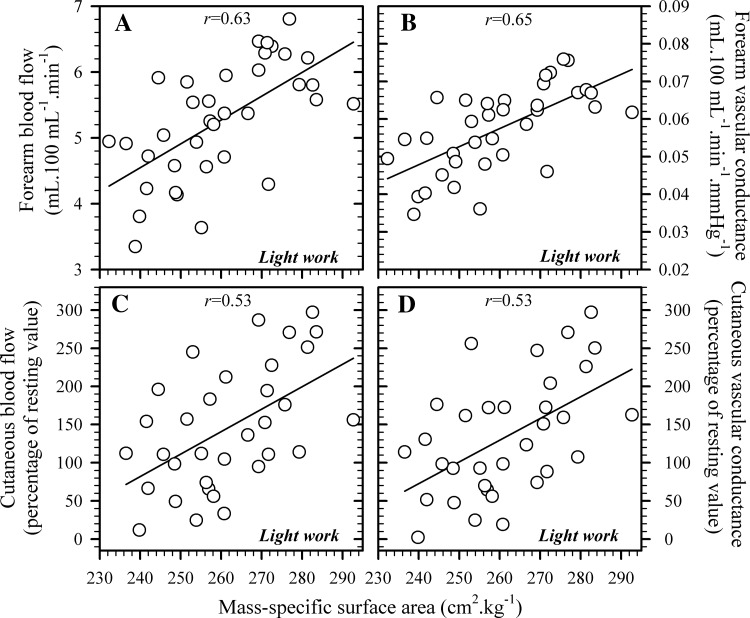Fig. 2.
Relationships between mass-specific surface area and forearm blood flow (A: strain-gauge plethysmography, n = 36) and forearm vascular conductance (B), as well as local cutaneous blood flow (C) (laser-Doppler flowmetry, n = 33) and local cutaneous vascular conductance (D) during light work. Data were collected during steady-state exercise (45 min at ∼135 W/m2) following 20 min of resting, thermal equilibration (28°C, 37% relative humidity), and are presented as means for each subject over the final 5 min of exercise. Solid lines are least-squares, best-fit, linear regressions, with all correlations being significant (P < 0.05).

